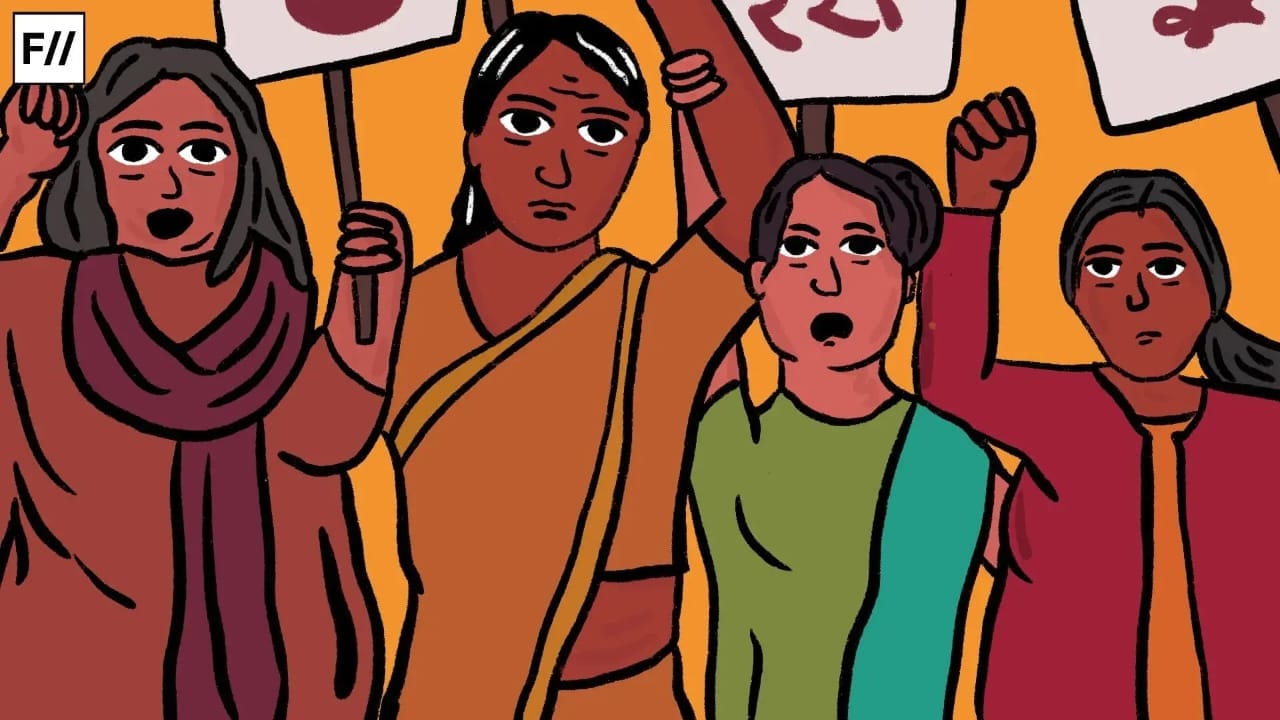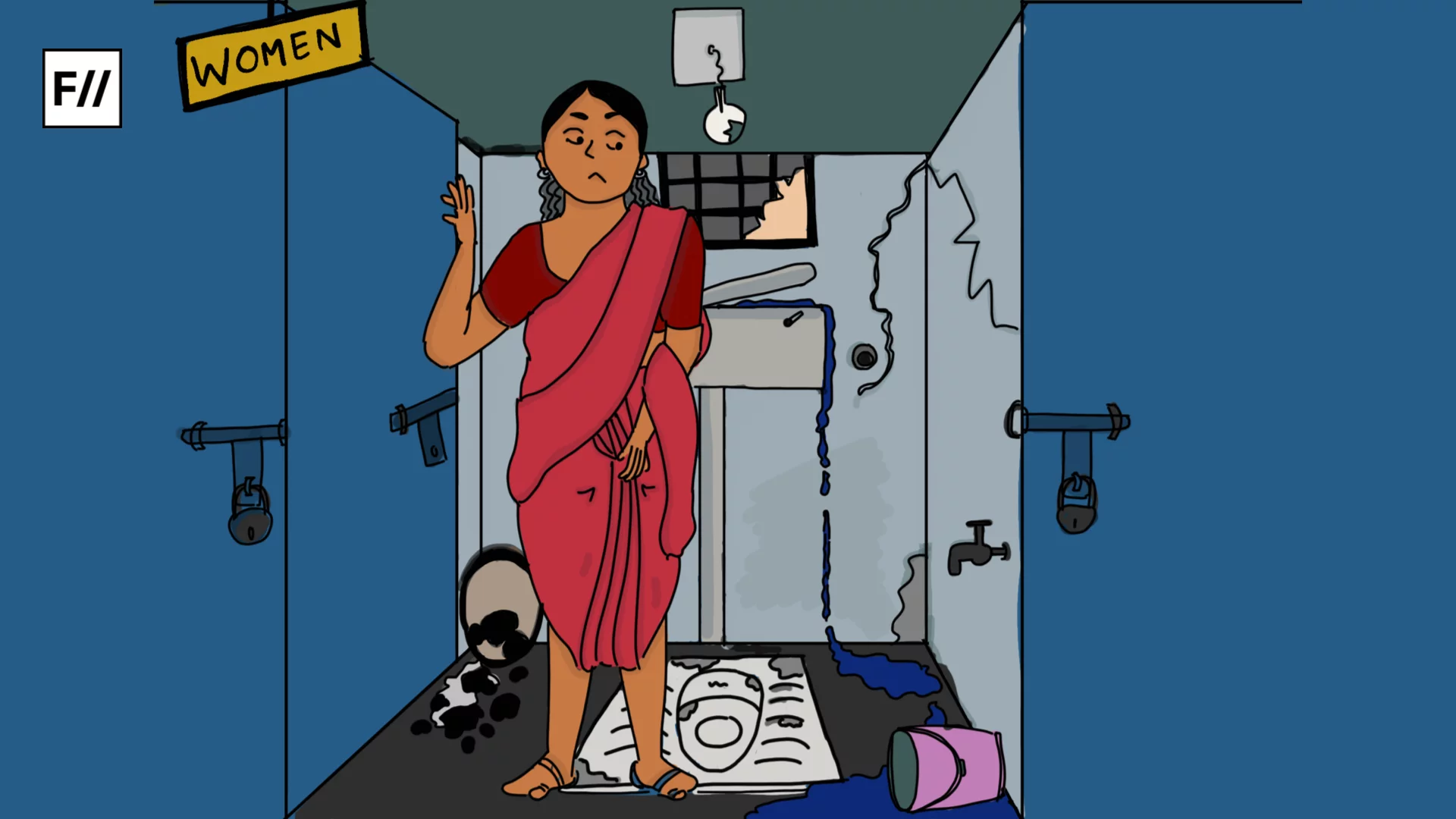The world is facing a global health crisis, affecting people in diverse and drastic ways. Covid-19 has deepened pre-existing inequalities and exposed gaps in our systems, amplifying the effects of the pandemic. The multi-layered effects of Covid-19 have been exacerbated for women and girls.
Physical distancing and stay-at-home orders have had larger implications for women in every sphere of their lives. Nearly 70% of women work in the informal economy; they hold less secure jobs, earn less and save less. With the sharp rise in unemployment and limited access to social protections, they do not have the capacity to absorb the economic shocks and are at greater risk of falling into poverty. In addition to this, there has been an exponential increase unpaid care work with school closures and heightened care needs of family members at home. Women are spreading themselves thin as they bear the burden of household responsibilities. Competing home and work demands place their jobs at further risk with cuts (inability to avail paid sick leave) and lay-offs. Single-parent or female-headed households are facing significant difficulty in supporting themselves and their families.
Loss of financial independence along with control of finances keeps women bound to relationships and increases their vulnerability to experience exploitation and abuse. This along with restriction of movement, limited decision-making capacity and lowered social bargaining power, further threaten their safety and autonomy at home. Family members may use deliberate and neglectful tactics to exert power, including continuously finding fault with them, belittling their effort, refusing access to jointly owned money and threatening to cause harm. Neglectful strategies involve withholding interaction, invalidating their feelings and communicating to a woman that she is inferior.
Psychological abuse is often a precursor to physical and sexual violence in relationships; depriving them of basic needs, causing harm, using coercion, manipulation or guilt to have sex and making offensive statements about one’s sexuality or body. Covid-19 has presented a scenario of increased incidence of family abuse, intimate partner violence, and greater complication in reporting and seeking help. With diminished community support, disconnection from social networks and inability to seek temporary refuge from ‘outside spaces’ or have access to ‘private spaces’, women are experiencing chronic distress.
Women trapped in an escalating cycle of tension, power and control are vulnerable to experiencing varied mental health concerns, including depression, anxiety and trauma. Stigma and lack of (and access to) social support often lead to internalization of abuse and directing the anger, humiliation and fear towards themselves, aggravating feelings of worthlessness and helplessness. This may also result in trauma bonding. If a woman experiences abuse from a partner who also expresses love, they learn to associate love with abuse. They often rationalize, justify or minimize the abuse and are less likely to report it.
Also read: Covid-19 Pandemic & The Socio-Economic & Political Impact On Women
For those already coping with these concerns, it may worsen their experience of mental health conditions. Symptoms may include (but are not limited to) the following: negative self-perception, persistent low/anxious/empty/erratic mood, inability to experience pleasure, difficulty with attention/memory, changes in appetite and sleep, fatigue, bodily pains and thoughts of self-harm and suicide. (Seek support from a mental health professional if you are experiencing these concerns)
During the pandemic, as healthcare resources are often diverted from routine health services, women do not have access to sexual, reproductive and maternal health services. Challenges in accessing contraception, safe abortion and medication further perpetuate isolation, violence and feelings of shame and lowered self-worth and heighten the risks to women’s health and well-being. Visible and invisible wounds of exploitation and abuse remain with women throughout their lives.
As we stand in the middle of this historic inflection point, our collective response must be equally historic and urgent. Time and time again, women have proved to be the backbone of recovery in communities as they sustain their families, households and communities during difficult times. They need to be included and represented in economic planning, policy decision-making and emergency response planning.
Individuals and communities must to be sensitized about Covid-19’s effects on women, and work towards addressing long-standing inequalities. Governments should draw up immediate plans and coordinate efforts between local governing bodies, civil society organizations and mental health organizations to ensure women’s safety. This is not only about combating inequalities but building a more resilient and just world, in the interest of all.
Strategies may include to,
- Designate domestic violence shelters as essential services and increase resources to them and groups on the front line of response
- Designate safe spaces to report abuse (example grocery stores, pharmacies etc.) with the benefit of anonymity
- Move services online and create social networks for survivors
- Increase awareness and advocacy campaigns
- Provide and expand inclusive social protection for caregivers to mitigate the effects of the overload of unpaid care work (for instance, providing family and paid sick leave, flexibility in work timings etc.)
- Prioritize sexual and reproductive healthcare services and legal aid
Also read: Covid-19: Kashmir Under Yet Another Lockdown
If you are experiencing abuse,
- Speak to someone you trust about your concerns
- Seek psychological support
- Get in touch with 24×7 women helpline numbers
Rhea Mathews is a mental health researcher, working for an NGO called Sangath in New Delhi. She also practices as a counselling psychologist and works towards building safe spaces for people to express their needs, desires and concerns. In her time away from work, she plays sports, reads and journals.
Featured Image Source: Bloomberg





As a caretaker and as a Bach flower registered practitioner all those in the mental health empowerment field need to know about Bach flower remedies, a healing modality and a part of homeopathy. It takes care of the negative emotions of the mentally challenged and is a boon to both the caretaker as well as the patient. I have benefited immensely and would urge mental health professionals to read up on the Bach flower remedies on the UKBACHCENTRE and or on Google the thousands of articles on this subject. The flower essences are readily available with leading homeopaths and can be learnt to be dispensed and preparing customised flower essences.